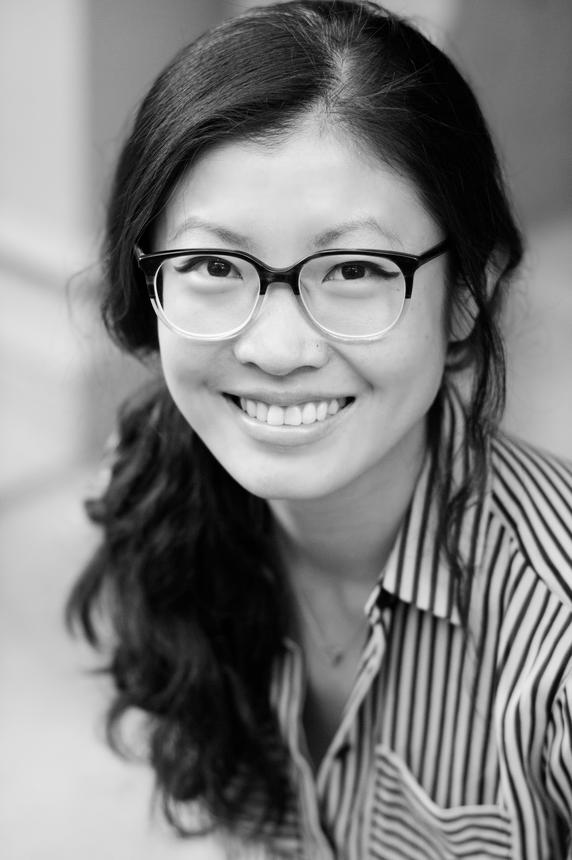Chemistry
Weike Wang
Our unnamed narrator is three years into her post-grad studies in chemistry and nearly as long into her relationship with her devoted boyfriend, who has just proposed. But while his path forward seems straight, hers is ‘like a gas particle moving around in space’: her research is stagnating, and she’s questioning whether she’s lost her passion for her work altogether. The demands of her Chinese parents—who have always expected nothing short of excellence—don’t help. Eventually, the pressure mounts so high that she must leave everything she thought she knew about her future, and herself, behind. And for the first time she’s confronted with a question she won’t find the answer to in a textbook: What do I really want?
Over the next two years, this winningly flawed, disarmingly insightful heroine learns the formulas and equations for a different kind of chemistry—one in which the reactions can’t be quantified, measured and analysed; one that can be studied only in the mysterious language of the heart.
Read a piece by Weike Wang in the Irish Times, ‘The American ideal is that the child owes the parent nothing’, (Jun, 18)
Read Weike Wang’s essay in Female First, ‘My Top Female Scientists’ (May 18)
INTERVIEWS
Asian American Writer’s Workshop
REVIEWS
New Yorker
Radio NZ, Nine to Noon
Readings blog (top pick for the month!)
Sam Still Reading blog
Wormhole blog, (May 18)
Wormhole (podcast)
andChemistry
‘Starts as a charming confection and then proceeds to add on layers of emotional depth and complexity with every page. It is to Wang’s great credit that she manages to infuse such seriousness with so much light. I loved this novel.’
‘How do we learn to love if we haven’t been taught? That question seems to be the nucleus of Chemistry. Wang challenges the conventions of the marriage plot: the story begins with a proposal, falls into an alienating existential crisis, and ends in the morally ambiguous territory of self-actualisation. The force of the novel is the narrator’s perfectly executed voice, unflinching and painfully self-aware as she deconstructs her life—disastrously, bravely—to see if there is anything at the bottom she can hold on to.’
‘Science is an excellent lens for Weike Wang’s look at a young woman’s wonderfully skewed experience of love, ambition, loyalty, and, of course, chemistry.’
‘A genuine piece of literature: wise, humorous, and moving.’
‘Outstanding…Unfolding in brief chapters studded with observations about her childhood and scientific facts, Chemistry may be the funniest novel ever written about living with depression.’
‘The most assured novel about indecisiveness you’ll ever read…Despite its humour, Chemistry is an emotionally devastating novel about being young today and working to the point of incapacity without what you should really be doing and when you can stop.’
‘A novel about an intelligent woman trying to find her place in the world. It has only the smallest pinches of action but generous measures of humour and emotion…Chemistry will appeal to anyone asking themselves, how do I create the sort of family I want without rejecting the family I have.’
‘A spiky, sparkling slip of a novel…with a singular take of love, lab science, and existential crises.’
‘A clipped, funny, painfully honest narrative voice lights up Wang’s debut about a Chinese-American graduate student who finds the scientific method inadequate for understanding her parents, her boyfriend, or herself…Wang [has a] gift for perspective.’
‘Equal parts intense and funny…The narrator’s voice—distinctive and appealing—makes this novel at once moving and amusing, never predictable. A wry, unique, touching tale of the limits of parental and partnership pressure.’
‘It’s easy to get sucked into Weike Wang’s writing: it’s spartan and succinct, and so undeniably full of sucked-dry, smart humor, that you don’t realize just how clear, just how painful, everything she’s telling you is––and then it’s like she’s pushing on a cavity until you cry out.’
‘A beautiful, funny, eye-opening book.’
‘Reading Chemistry makes you realise that you don’t need a lot of words to tell a story—you just need the right ones.’
‘Quietly funny and meticulously crafted.’
‘[A] wistful, witty debut.’
‘A brilliant coming-of-age story.’






